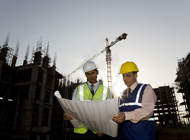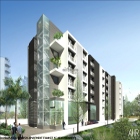
Real estate development is a multifaceted business, encompassing activities that range from the renovation and re-sale of existing buildings, to the purchase of raw land, develop and sale of improved parcels to others. Developers are the coordinators of the activities, converting ideas on paper into real property. They create, imagine, fund, control and orchestrate the process of development from the beginning to end. Developers usually take the greatest risk in the creation or renovation of real estate.
Subdivision of land is the principal mechanism by which communities are developed. Technically, subdivision describes the legal and physical steps a developer must take to convert raw land into developed land. Subdivision is a vital part of a community's growth, determining its appearance, the mix of its land uses, and its infrastructure, including roads, drainage systems, water, sewerage, and public utilities
Typically, developers purchase a tract of land, determine the marketing of the property, develop the building program and design, obtain the necessary public approvals and financing, build the structure, and lease, manage, and ultimately sell it.
The development process requires skills of many professionals: architects, landscape architects, and site planners to address project design; market consultants to determine demand and a project's economics; attorneys to handle agreements and government approvals; environmental consultants and soils engineers to analyze a site's physical limitations and environmental impacts; surveyors and title companies to provide legal descriptions of a property; and lenders to provide financing.
Assembling a team of professionals to address the environmental, economic, physical and political issues inherent in a complex development project is critical. A developer's success depends on the ability to coordinate the completion of a series of interrelated activities efficiently and at the appropriate time.





 Service
Service




